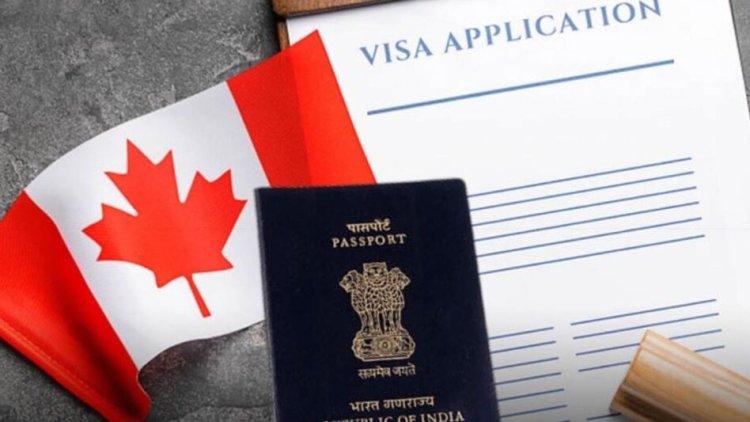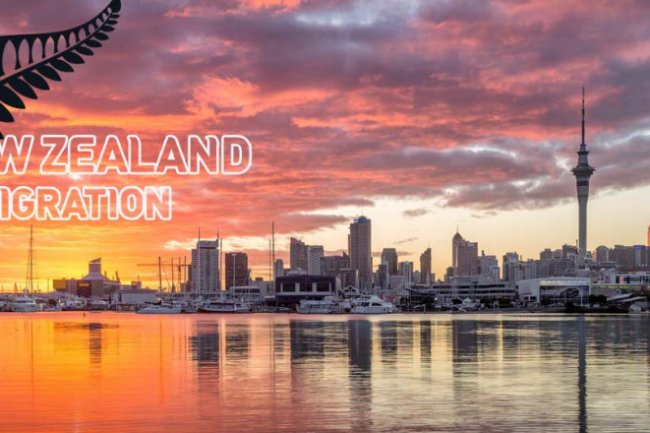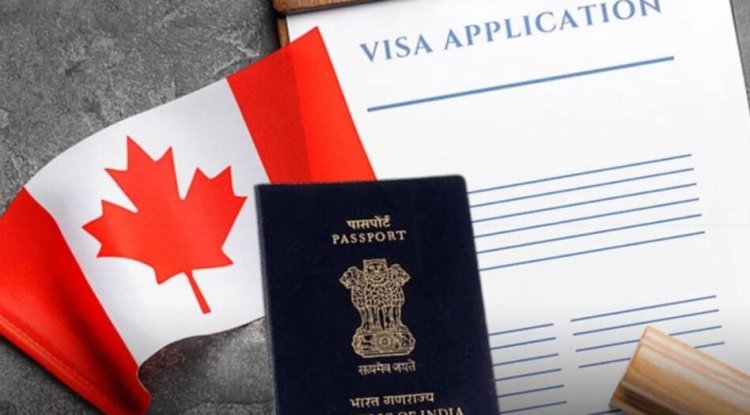Discover why Canada’s student permits for Indians dropped 50% in 2025. Learn policy changes, impacts, and top alternative study destinations abroad.

In 2025, one of the most dramatic changes in global education mobility will come from Canada — a country once seen as the ultimate study-abroad dream for Indian students. A 50% drop in study permits for Indians has raised concerns, disrupted plans, and reshaped global student flows.
This steep decline did not happen overnight. It is the result of policy tightening, evolving immigration priorities, and an increasingly complex post-graduation pathway. As Canada redefines its approach, thousands of Indian students are looking elsewhere — from Germany and France to the ANZ (Australia & New Zealand) and Ireland — for more stable and transparent opportunities.
Why Canada Tightened Its Student Permit Rules
For years, Canada has been among the top destinations for Indian students, welcoming over 320,000 Indian learners in 2023 alone. However, by 2025, the numbers tell a very different story.
Here is what triggered the decline:
- Housing Crisis and Resource Strain
Canada’s housing shortage, especially in cities like Toronto, Vancouver, and Montreal, reached critical levels in 2024. With record-high rents and limited student accommodation, the government decided to curb new international student inflows to reduce pressure on local infrastructure.
Many private colleges faced scrutiny over quality standards and job outcomes. The Canadian government introduced stricter DLI approval criteria, forcing institutions to prove housing capacity, student support systems, and transparency in admissions.
To ensure financial stability, international students are now required to show higher proof of funds — almost double the previous requirement. Simultaneously, Canada reduced off-campus work hour flexibility, impacting students who relied on part-time jobs to manage expenses.
Top Canadian Universities Hit by the Decline
The drop in study permits has not just affected private institutions — even world-renowned universities are feeling the impact.
Among the most affected are:
- University of Toronto (UofT) – A global hub for engineering, management, and data science.
- McGill University – Known for medicine and business, now seeing reduced Indian enrollment.
- University of British Columbia (UBC) – Once among the top three choices for Indian students.
- University of Waterloo – Especially hit in STEM programs and co-op placements.
- York University and Concordia University – Witnessing fewer applicants due to housing and financial challenges.
With fewer Indian students, these universities are expanding recruitment in Africa, the Middle East, and Latin America to maintain diversity and revenue balance.
Impact on Indian Students
For Indian students, the 50% drop represents more than just numbers — it is about uncertainty, delayed dreams, and shifting goals.
- Visa Rejections and Delays
About 62% of student visas in 2025 were rejected, with many applications delayed for months. Students applying for engineering, IT, and business programs are the most affected, as these fields traditionally draw large volumes of Indian applicants.
- Financial Strain
Canada’s recent update to its cost-of-living and proof-of-funds requirements has made studying abroad more financially demanding. The government now expects students to show stronger financial readiness before approval, which has increased the upfront burden on applicants and led many families to reassess the affordability of pursuing education in Canada.
- Limited Post-Study Pathways
Recent reforms to the Post-Graduation Work Permit (PGWP) have introduced caps and restrictions, especially for short-term or private college programs. The result? A decrease in long-term migration opportunities.
The Rise of Europe as a “Safer” Study Destination
As Canada tightens its rules, Europe has emerged as the biggest winner in 2025. Countries like Germany, France, and the Netherlands are attracting thousands of Indian students who once had Canada at the top of their list.
- Germany: The New Tech & Engineering Magnet
Germany offers tuition-free or low-cost education at public universities. Top courses include mechanical engineering, AI, data science, and renewable energy. With strong job prospects and a post-study work visa, it’s a leading alternative to Canada.
- France: Business, Arts & Design
France attracts students in business, management, and creative arts. The new India–France mobility pact simplifies study and work visas.
Top Picks: HEC Paris, ESSEC Business School, INSEAD, Sorbonne University.
- The Netherlands: Innovation and Employability
Known for English-taught programs and cutting-edge research, the Netherlands emphasizes sustainability and digital transformation.
Top Picks: TU Delft, University of Amsterdam, Eindhoven University of Technology, Wageningen University.
- Ireland: The Tech and Startup Gateway
Ireland’s booming tech scene, with companies like Google and Meta, offers vast opportunities in IT, analytics, and finance.
Top Picks: Trinity College Dublin, University College Dublin, National University of Ireland Galway, Dublin City University.
- Dubai – Fast-Growing Global Education Hub
Home to world-class international campuses and a tax-free lifestyle, Dubai offers global exposure close to India.
Top Picks: Heriot-Watt University Dubai, Middlesex University Dubai, University of Birmingham Dubai, Manipal Academy Dubai.
- Australia – Global Education Excellence
Known for world-class universities and post-study work options, Australia excels in data science, healthcare, and sustainability.
Top Picks: University of Melbourne, Monash University, University of Sydney, UNSW Sydney.
New Zealand – Safe & Sustainable Choice
New Zealand combines quality education with a strong focus on sustainability and work-life balance.
Top Picks: University of Auckland, University of Otago, Victoria University of Wellington, Massey University.
How Indian Students Are Adapting
Despite the uncertainty, Indian students remain resilient and adaptive. Study-abroad consultancies report a clear trend: students are now diversifying their options, applying to multiple countries simultaneously to avoid rejection setbacks.
- Exploring Non-Traditional Destinations
Alongside Europe, students are exploring Ireland, and New Zealand, drawn by policies favoring international graduates.
Discover New Zealand’s Bold Vision with ACHIVIA — Doubling Its International Education Market by 2034!
- Focus on Green and Digital Careers
Courses in sustainability, renewable energy, AI, and cybersecurity are witnessing record applications — reflecting a new generation of globally aware learners.
- Shift Toward Hybrid and Online Pathways
With the rise of hybrid learning, many are beginning with online semesters from India before transitioning abroad, minimizing upfront financial risks.
What This Means for Canada’s Global Standing
Canada’s education system remains world-class, but the policy tightening may have long-term consequences.
- The country risks losing its top-three global position for international education.
- Reduced student inflows may affect university revenues and local economies dependent on student housing, food, and transportation.
- The global perception of Canada as a welcoming, immigrant-friendly destination is taking a hit, especially among the Indian diaspora — a key contributor to its cultural and economic fabric.
The Road Ahead: Can Canada Rebuild Trust?
Experts believe that Canada may eventually recalibrate its policies once housing and infrastructure stabilize. However, in 2025, the focus remains on quality control, housing solutions, and long-term planning rather than rapid intake.
To rebuild trust, Canada will need to:
- Streamline visa processing and transparency.
- Expand on-campus accommodation capacity.
- Strengthen ties with India through new education diplomacy.
- Provide clearer post-study migration pathways.
Final Thoughts
The 50% decline in Indian student permits is not just a statistic — it is a signal that global education is transforming. Canada’s slowdown has opened the door to a more diverse, opportunity-rich world, where students are rewriting their dreams across Germany, France, Finland, and the Netherlands.
And that is where ACHIVIA comes in — not just a consultancy, but your personal guide to turning big dreams into real journeys. We help you look beyond borders, explore exciting universities, and set yourself up for a truly future-ready career.
Because at ACHIVIA, your destination is not about a country — it is about how far your dreams can take you. And the best part? You are just one call away. Reach out today, and let’s get your global adventure started!
What's Your Reaction?




















